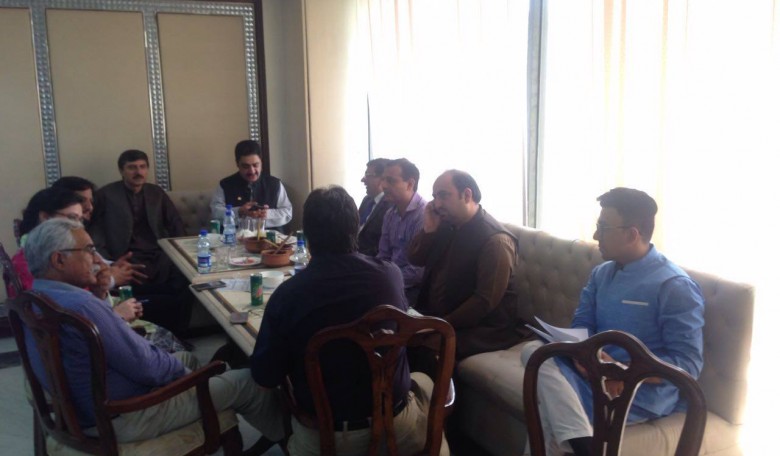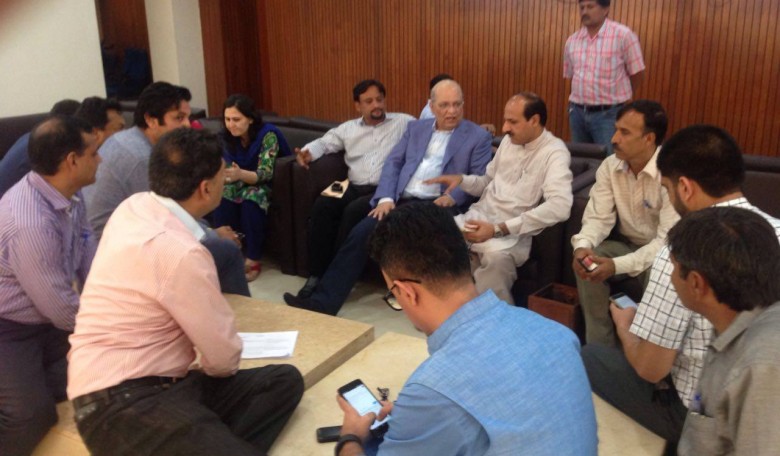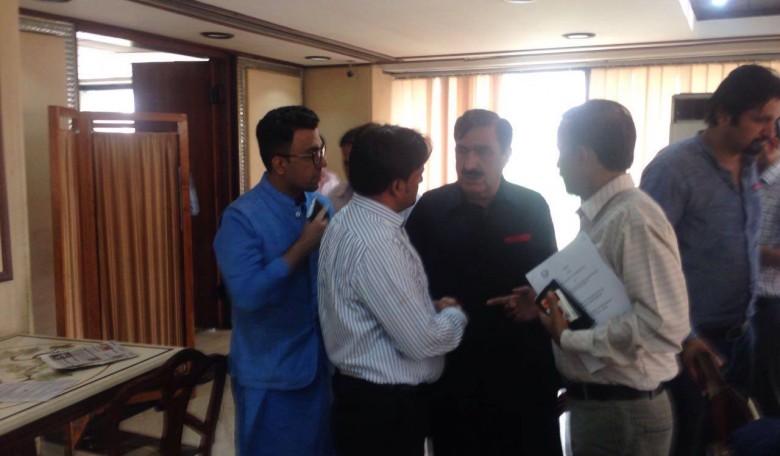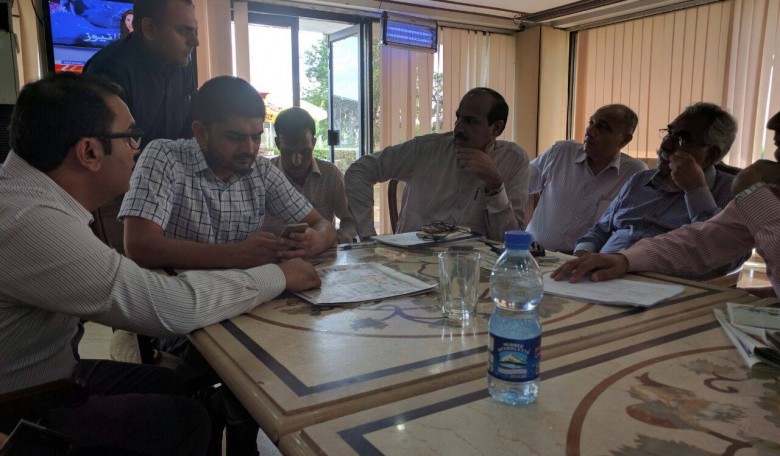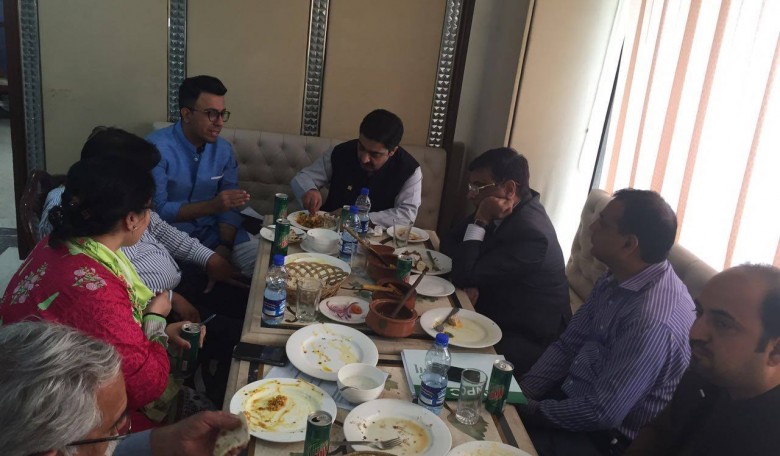Islamabad, 27 July 2016: Media Matters for Democracy, as a last resort, takes to lobbying with opposition senators and legislators to push for reforms in oppressive Prevention of Electronic Crimes Bill 2016 on the floor of the Senate.
The Senate Committee on Information Technology was tasked by the Senate Chairman to work towards reforms in Prevention of Electronic Crimes Bill 2016 inline with the recommendations of civil society organisations. After deliberations, the Committee is to present the PECB along with reforms in the Senate today with only symbolic, superficial changes.
Media Matters for Democracy remains critical of the parts of the legislation which give sweeping powers to the executive to censor the Internet.
To make sure the opposition Senators are aware of the implications of this oppressive legislation and the potential for political abuse, Media Matters for Democracy had meetings with various Senators and legislators from opposition benches. Asad Baig of MMfD gave comprehensive presentations on how PECB stands to criminalise speech and free expression. Senators committed to raise questions on the floor of the Senate.
Journalists walk out of the press gallery:
The Pakistan Federal Union of Journalists, the Rawalpindi Islamabad Union of Journalists and the Parliamentary Reporters Association supporting the stance of Media Matters for Democracy on the implications of PECB on journalists and journalism in Pakistan, walks out of the Senate press gallery in protest, demanding reforms.
The delegation of journalists along with Media Matters for Democracy later met with the Senator Mushahid Ullah and the Federal Minister of Information and Technology Ansuha Rehman who assured of ‘meaningful’ reforms in the proposed legislation.
Following reforms were suggested by Media Matters for Democracy in the proposed PECB:
- the setting up of an Oversight Committee to ensure parliamentary oversight of matters regarding content management, defined in Section 34 of the Bill and data sharing of Pakistani citizens with foreign entities under International Cooperation section defined in Section 39 of the Act. Composition and functions of this committee have been defined in Sections 2b, 3za and 3zd of the accompanying document.
- the inclusion of a public interest defence clause, dealing particularly with sections related to access to data and information systems and distribution of data. This defence has been recommended to ensure that whistleblowers, journalists, and human rights defenders acting in public interest are not convicted under this law. The proposed defence clause is defined in Section 2a of the accompanying document.
- addition of provisos in Section 9, Section 19, Section 28 and Section 31 of the Act, to ensure that political satire, artistic expression and privileged communication under law is not criminalised. The concern and recommendation are outlined in Sections 3n, 3t, 3x and 3y of the document.
- a stronger, better defined procedure for real-time surveillance provisions, Section 36 of this Act. In its current form, the provision is contrary and in conflict with the procedure defined in the Investigation for Fair Trail Act. Real-time surveillance entails serious concerns for privacy rights of citizens and thus a stricter and more transparent procedure needs to be followed. Our recommendation is outlined in Section 3zb of the document.
- we have also recommended omission of certain Sections or parts of certain sections to ensure that minor crimes that are already dealt with under other laws and PPC are removed. Currently, the Act includes multiple crimes which are not strictly within the purview of cybercrime – for example the currently definition of device would include a photocopier, which means forgery committed using a photocopier would be classified as a cybercrime – the recommendation to remove such definitions or sections intends to ensure that the Act is not weakened by the inclusion of such petty crimes and the magistrates dealing with cybercrime cases are not overwhelmed.

